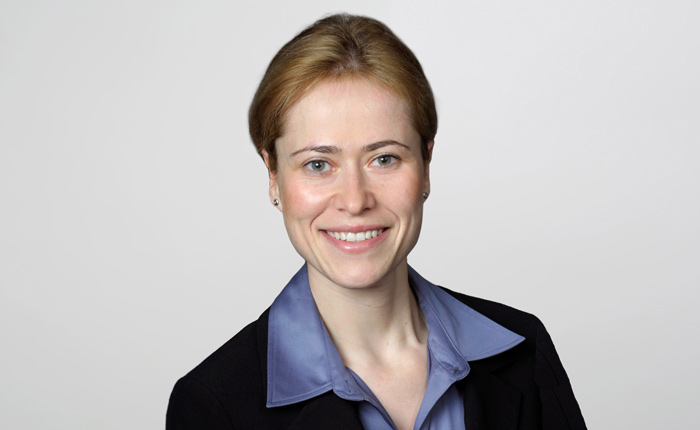From math to economic consulting
 Partner Rachel Grinberg has a PhD in mathematics and began her career in academia. But, as she discusses here, her work as a mathematician translates well into the economic work at Bates White.
Partner Rachel Grinberg has a PhD in mathematics and began her career in academia. But, as she discusses here, her work as a mathematician translates well into the economic work at Bates White.
Q. How is mathematics applicable in economic consulting work?
A. Mathematics cultivates you to be a careful thinker. It disciplines you to methodically and critically think through concepts and enables you to assess what assumptions you can reasonably make. In addition, mathematics provides the rigorous technical training that lays a foundation for data analysis and economic and econometric models. This is exactly what we do in economic consulting. The foundation of every expert report and testimony is a careful analysis of the data, study of the record, and a choice of the appropriate methodology underlying the expert opinion. On every economic consulting case, the expert and the support team must look through many different inputs to see what inference one can draw in a rigorous and principled manner, much as a mathematician does in the proof of a theorem. The strength of an expert opinion is only as good as the understanding of the implications of the inputs and the assumptions.
Q. How did you make the move from math in academia to economic consulting?
A. Math spans multiple areas. It gives you the strength to be a generalist. I was a lecturer and a researcher at the University of California at San Diego, the same school where Hal White was faculty. This is where I learned about economic consulting and Bates White. I was fascinated by the type of work that Bates White did, and I saw that my training as a mathematician could be applied to many aspects of economic consulting. Hal White’s specialty—econometrics—is an intersection of economics and mathematics. I used it as my bridge to economic consulting and worked closely with Hal for my first few years at Bates White.
Q. Can you provide some examples of cases where your mathematics perspective was helpful?
A. Probably the most straightforward application of mathematics comes in matters that involve calculating damages, such as in price-fixing litigation. For these cases, one typically needs to develop an econometric model. Each econometric model comes with a mathematical specification – an equation – and a methodology to solve this equation. In addition, statistics, another sub-discipline of mathematics, helps quantify the uncertainty associated with the estimated damages.
I have also handled several music royalty cases. Royalty cases require a careful analysis of industry benchmarks and complex data that feed into a royalty formula. Experts in royalty cases analyze the available benchmarks, determine which ones are applicable, and make adjustments as necessary. Being a careful and a critical thinker is imperative for this work; and my training as a mathematician provides a solid foundation.
Q. How have you used mathematics in testifying?
A. I have been retained on three cases as the testifying expert, with one resulting in live testimony. That case was in the insurance arena, and my role was to estimate the amount of fees and expenses that were recoverable from an insurer. My team and I reviewed the data and the available characteristics. Armed with this knowledge, I developed a robust sampling technique to facilitate an audit of a sample of the disputed fees and expenses (auditing the entirety of the disputed fees and expenses would have been cost and time prohibitive). After the audit was conducted, I once again used my training as a mathematician to extrapolate the sampled audit results to the overall quantum of recoverable losses and to quantify the associated uncertainty. The matter went all the way to an arbitration proceeding in London, in which I provided live testimony.
Q. Do you see many female testifying experts?
A. Economic expert testimony is still generally a male-dominated field, although more women are entering the field. Being a female testifier can be an asset—if only because it may be different than the usual. During my live testimony in London, the arbitration panel was all male and of the five testifying experts, I was the only female. I felt that because of that difference—being female—the judges may have listened more carefully to what I had to say. As a woman, I may bring a different perspective and add value beyond my economic expertise.
- Partner


